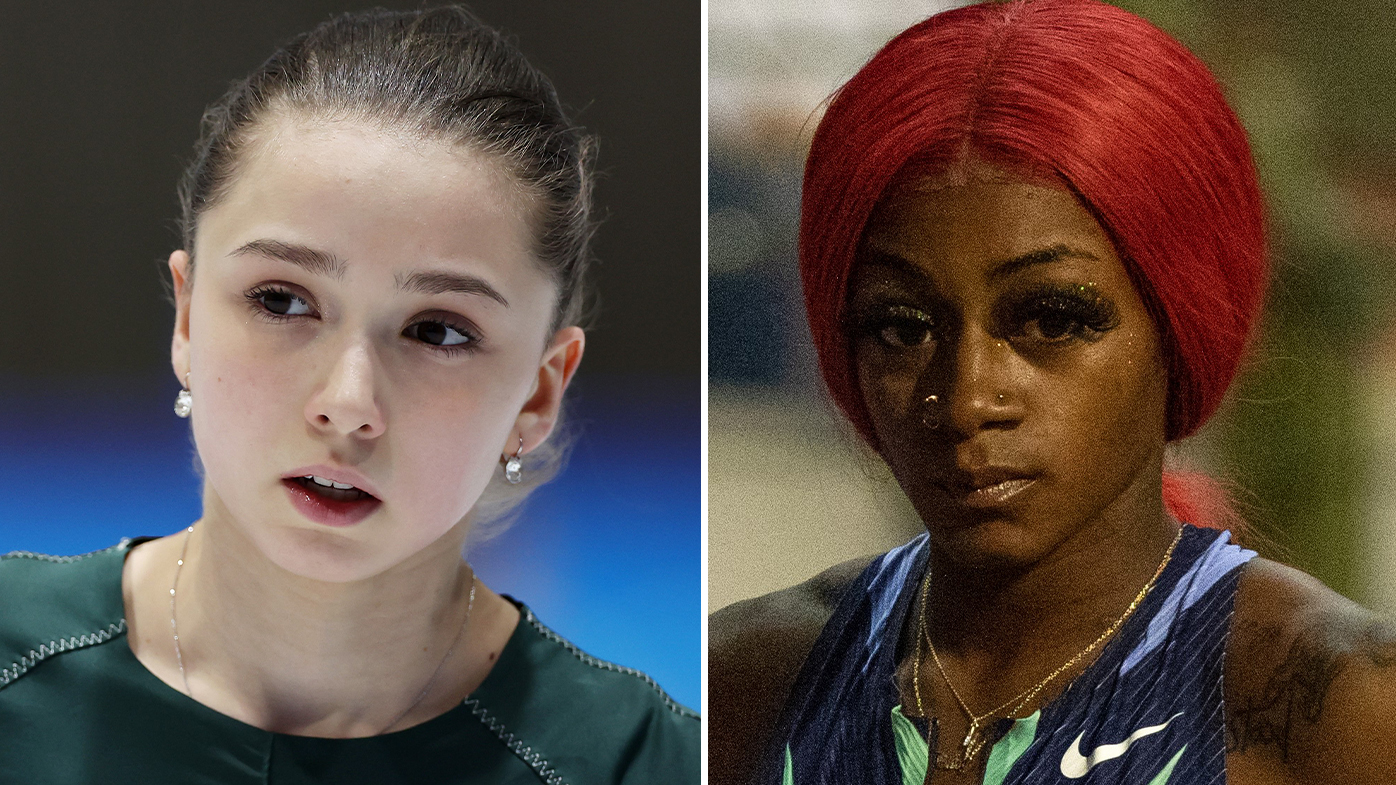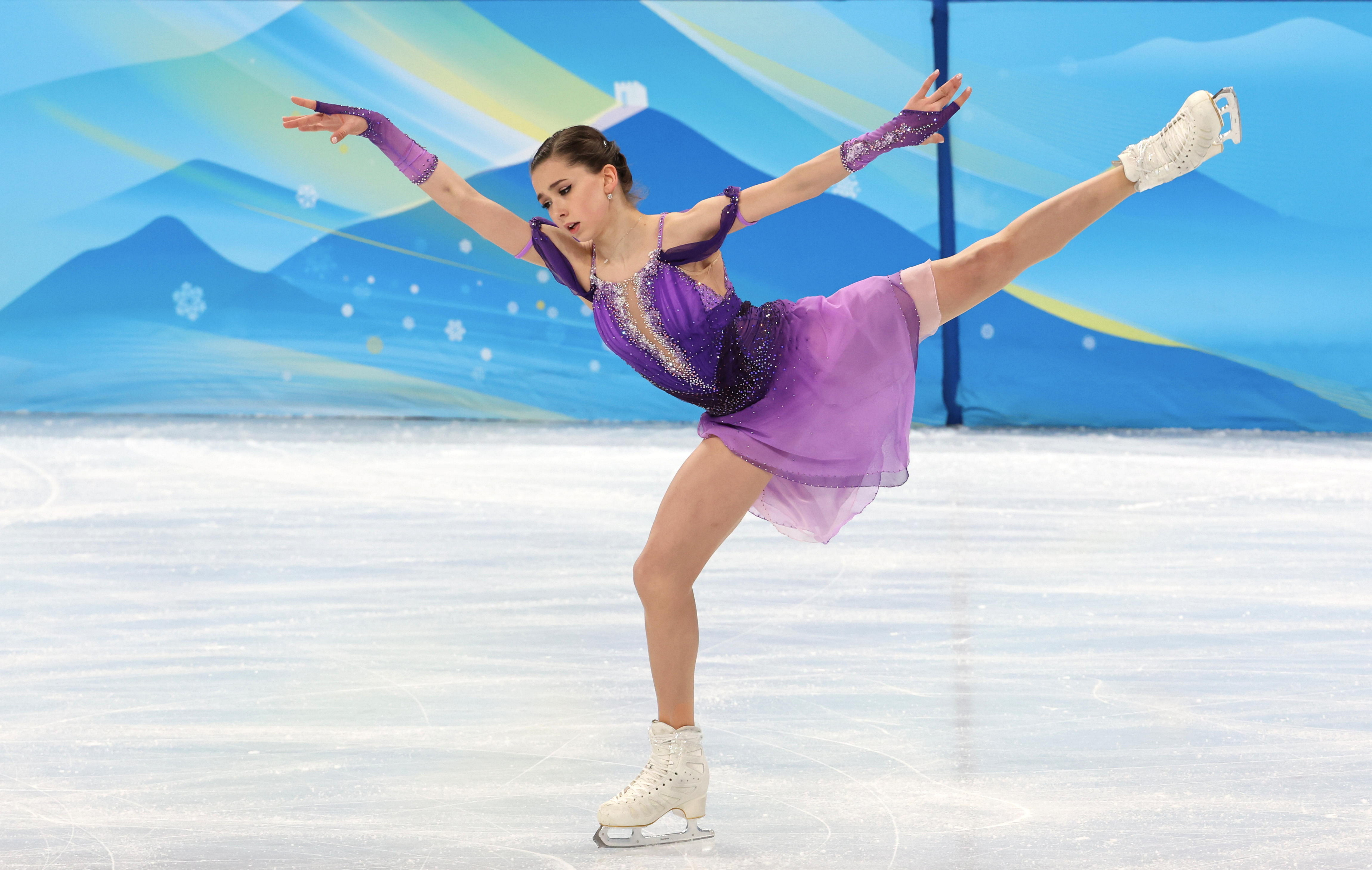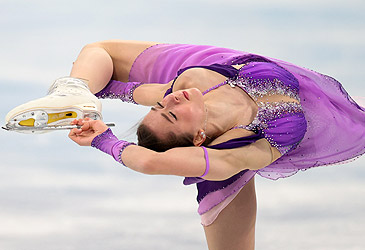The International Olympic Committee has refuted claims of double standards involving was US sprinter Sha’Carri Richardson compared to Russian skater Kamila Valieva after both tested positive for a banned drug.
Richardson missed last year’s summer Games in Tokyo after receiving a 30-day ban for having cannabis in her system, a drug many believe is non-performance enhancing. Richardson said she took the drug to relieve the pain she felt over the recent death of her mother.
READ MORE: Ben Simmons opens up on ‘dark times’ after messy 76ers exit
READ MORE: Russian Olympian’s tears in return to competition after doping controversy
READ MORE: F1 star hired bodyguards after Abu Dhabi fiasco
However this week, the court of arbitration for sport had allowed Valieva to continue to compete at the Winter Games in Beijing despite it emerging that the 15-year-old had tested positive for the angina drug trimetazidine, a more egregious offence.
Speaking earlier this week, Richardson said race was the only thing she could think of when trying to rationalise the decision.
“Can we get a solid answer on the difference of her situation and mine? The only difference I see is I’m a black young lady,” she said.
Others have suggested that the IOC has been soft on Russia compared with the US. However, IOC spokesman Mark Adams insisted that that was not the case.
“You can’t talk about double standards in relation to Russian and American athletes, each case is individual,” he said. “Richardson’s positive doping test was discovered on 19 June, and the result was received before the start of the Olympics. She was suspended for a month. There is nothing in common between these two cases.”
Meantime, two legal substances used to improve heart function were listed on an anti-doping control form filled out for Russian figure skater Kamila Valieva before her drug case at the Olympics erupted, according to documents submitted on her behalf.
The World Anti-Doping Agency filed a brief in the Valieva case stating that the mention on the form of L-carnitine and Hypoxen, though both legal, undercuts the argument that a banned substance, trimetazidine, might have entered the skater’s system accidentally.
Hypoxen, a drug designed to increase oxygen flow to the heart, was a substance the U.S. Anti-Doping Agency recently tried, without success, to get placed on the banned list. L-carnitine, another oxygen-boosting performance enhancer, is banned if injected above certain thresholds. The supplement was the focal point of the doping case involving track coach Alberto Salazar.
Combining those with 2.1 nanograms of the heart medicine trimetazidine, the drug found in Valieva’s system after a Dec. 25 test, is “an indication that something more serious is going on,” USADA CEO Travis Tygart said.
“You use all of that to increase performance,” he said. “It totally undermines the credibility” of Valieva’s defence.
Two people with knowledge of the case told The Associated Press that a brief seen by the AP that was filed by the World Anti-Doping Agency in a hearing on Valieva’s case was authentic. The people spoke on condition of anonymity because the document was not publicly available. WADA did not immediately respond to an email left by the AP asking for comment on the brief.
The brief describes Valieva’s mother as arguing that the skater’s grandfather was a regular user of trimetazidine, which would explain how it got into her system. But WADA said that explanation was not enough to clear her of a doping violation.
The brief also says Valieva’s mother testified that her daughter used Hypoxen to treat “heart variations.”
Valieva’s positive test came to light after she had led the Russians to a gold medal in the team skating event last week. Russia’s anti-doping agency at first suspended her, then lifted the suspension. That led WADA and the IOC to appeal to the Court of Arbitration for Sport, which determined Valieva could skate in the women’s event that began Tuesday.
Because she is 15, she is considered a “protected person” under anti-doping rules and could escape major sanctions. Her coaches and other members of her entourage are subject to automatic investigation and bigger penalties.
The larger case involving the positive test, and resolving whether Russia will get its gold medal, will be decided later. In the meantime, the IOC has said there will be no medal ceremony for events in which Valieva makes the podium. She’s a favorite for gold, and was leading after the short program.
For a daily dose of the best of the breaking news and exclusive content from Wide World of Sports, subscribe to our newsletter by clicking here!



